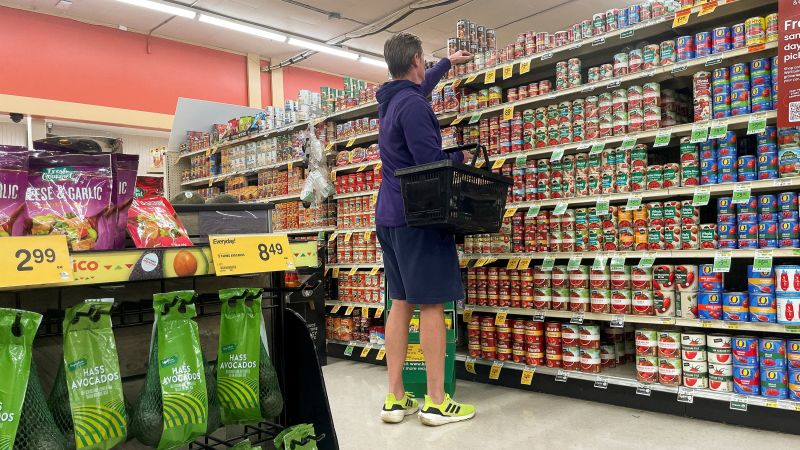[President-elect Donald Trump says Americans will soon be able to afford groceries, but current data suggests otherwise. According to the Consumer Price Index, Americans paid 22% more for groceries last month compared to when Trump left office in January 2021, and 27% more compared to February 2020, before the pandemic.
Speaking at the New York Stock Exchange, Trump said, “They’re going to be affording their groceries very soon.” He referenced an “old woman” who tried to buy three apples and was shocked by the price, which led her to return one to the refrigerator.
Trump’s strategy to bring down grocery prices has shifted to focus on supply chain issues, in addition to drilling more oil. In an August press conference, he said, “Grocery prices have skyrocketed. When I win, I will immediately bring prices down, starting on day one. We will drill, baby, drill.”
However, economists generally prefer moderate price increases, and deflation can cause people to put off purchases. Trump also acknowledged that it’s hard to bring prices down once they’re up, but believes that energy and a better supply chain could help.
The supply chain was a major factor in food price spikes during the pandemic, but issues have since resolved. Monthly import cargo volume has run at near-record highs, according to the National Retail Federation and Hackett Associates. Trump’s new approach comes as weekly US crude oil production has hit a new record, helped by the country’s increased production capacity.
Experts say that drilling more oil would not have a significant impact on grocery prices due to other factors, but improving supply chains could be a more effective strategy, although it will be challenging. The US food and agriculture industries rely heavily on migrant labor, which could be disrupted by Trump’s deportation policies, potentially leading to labor shortages, food shortages, and higher prices.
Source link

